Instilling a Passion for Data Analytics in Boston High School Students
In June 2021, Alice Mello, Ph.D., was granted an award to develop and run a novel program, ‘Data Analytics Workshop: Empowering Minority High School Students with In-Demand Career Skills’ – from the Northeastern Office of Diversity, Equity and Inclusion. She also has leveraged support from the College of Professional Studies to support this high-impact initiative.
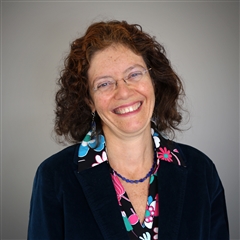
Mello’s interest was to ignite a passion for data analytics among the participating students through this preparatory course led by four graduate student mentors selected from the Master of Professional Studies in Analytics program, where Mello serves as an assistant teaching professor.
Called “Storytelling with Data,” the program was launched in three local schools: Edward M Kennedy Academy for Health Careers, where an in-person calculus class of 12 students studied data sets on Boston hospitals and COVID; Madison Park Technical Vocational High School, where two computer science classes attended virtual classes to study data sets on the chosen topics of games, movies, and Halloween; and Boston Day and Evening Academy, an alternative school for high school students, which attracted 13 math students for in-person learning. Students at the Academy first asked to study the war in Ukraine, but since data sets for this were hard to come by, they opted for public transportation instead.
Mentors began classes by explaining how data can be used to tell stories, by providing the context for any number of situations to show what is happening behind the scenes – and then how facts can create a visualization of patterns using the data visualization tool, Tableau. The climax of the story comes when the data reveals conflicts – which the data can also help resolve, using dashboards within Tableau.
The main goal of the program is to empower students to enter the field of data analytics, with a view to addressing the lack of diversity in the analytics field by inspiring students to continue their education at Bunker Hill Community College, the largest and most diverse community college in Massachusetts. This past year, CPS formed an agreement with BHCC that allows an easy transfer pathway for interested students, while offering Lowell Institute School scholarship support, depending on their financial needs.
“I am delighted at the success of this experience so far, both for the high school students and our MPSA graduate students (Teach to Learn and Learn to Teach!),” says Mello. “I’m committed to finding grant opportunities to offer this program on a yearly basis and I’m hopeful that we’ll see some of these students in our Bachelor of Science in Analytics or Bachelor of Science in Information Technology programs in a few years’ time!”
Novel Biomanufacturing Apprenticeship Program Helps Diversify Talent Pipeline for Life Sciences Industry
The MassBioEd Apprenticeship Biomanufacturing Program, launched in 2021, meets a significant industry demand by connecting unemployed or underemployed people to high paying, stable jobs in a growing field that is in need of diverse talent.
Northeastern’s College of Professional Studies has collaborated with MassBioEd to be the educational partner, teaching apprentices basic content in biology, chemistry, biotechnology, lab math, and more. “This innovative workforce development program pays learners to participate and guarantees a job at the end of the apprenticeship,” explains Liz Zulick, Associate Teaching Professor and Associate Dean, Research, Innovation, Development and Entrepreneurship. “Learners can continue their studies and enroll into our bachelor’s degree in biotechnology with eight credits from the apprenticeship program.”
With a Boost From the Akamai Foundation, Northeastern, Bunker Hill Community College, and Middlesex Community College Kick Off Initiative to Strengthen Pathway From Community College to the Tech Sector
‘Earn and learn’ initiative seeks to open doors, expand equity in computing.
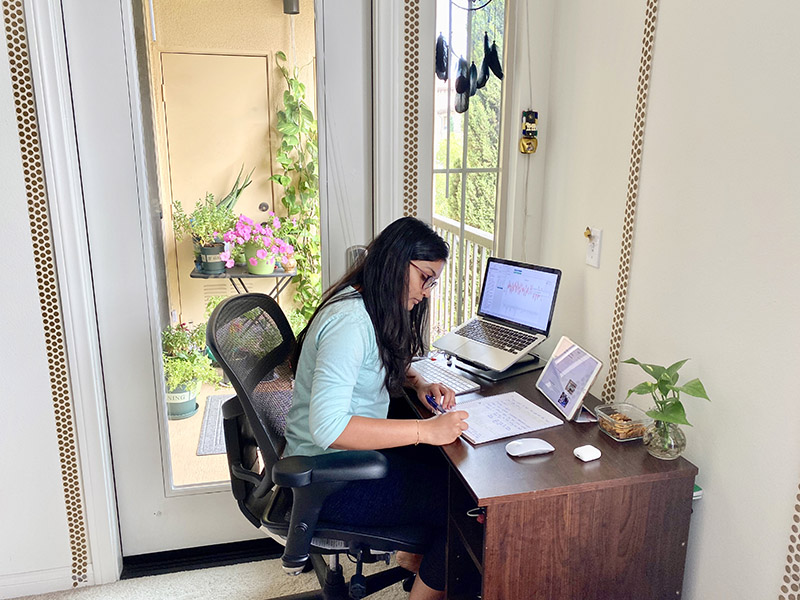
Northeastern University, Middlesex Community College, and Bunker Hill Community College are launching the Associate to Master’s degree Pathway for Technology (A2M4Tech) program, an innovative and affordable pathway to the technology sector for learners who begin their undergraduate education in community college. The development and startup of the program are supported by a $750,000 grant from Akamai Technologies Inc.’s Akamai Foundation. Dubbed “earn and learn”, the program addresses institutional barriers that have long slowed progress in achieving equity in computer science, interleaving study and work by providing full-time employment opportunities for students while they pursue their degrees.
“The Akamai Foundation is pleased to fund the Pathway for Technology (A2M4Tech) to expand and diversify the tech talent pool and support Northeastern University’s commitment to experiential education,” says Kara DiGiacomo, Director of Corporate Philanthropy, Akamai Technologies.
“The A2M4Tech program is an accessible pathway to an in-demand field with high-paying jobs,” says Dr. Liz Zulick, Director of the Lowell Institute School and Associate Dean for Research, Innovation, Discovery and Entrepreneurship at Northeastern University College of Professional Studies. “Many of our students have to work full-time while attending classes and completing coursework. Consistent employment is a necessity and, ideally, we want that job to be in the student’s field of study. Thanks to this grant from the Akamai Foundation, we can now create a pathway that works for adult learners, allowing those who otherwise might not be able to afford the cost or time investment of a degree, to enter the tech sector. Importantly, this pathway also offers industry partners a talent pipeline that is diverse in terms of race, ethnicity, and income—something that is an increasingly high priority for many employers. So, this program is a true win-win.” A2M4Tech is modeled on a similar program developed by Northeastern and Middlesex in the biotech sector.
As the U.S. job market has shifted dramatically toward STEM fields over the past half-century, the share of jobs requiring postsecondary education has doubled. This poses a vexing challenge in an economy where, according to a study published by the National Bureau of Economic Research, fully half of individuals from high-income families have a bachelor’s degree by age 25, while just 10% of those from low-income families do. According to the Postsecondary Value Commission, students of color and students from low-income backgrounds are concentrated in for-profit institutions and two-year colleges—where they are more likely to leave in debt but without a degree. Because variations in attendance, completion, and post-college outcomes by race, ethnicity and income are especially divergent in STEM fields that offer some of the best job opportunities, the A2M4Tech program is specifically designed to support students from underrepresented populations looking to gain credentials in computer science.
“The technology field should be accessible for everyone,” says Carla Brodley, Executive Director of the Center for Inclusive Computing (CIC) at Northeastern. “Removing the barriers that contribute to exclusion in computing is an urgent priority, and the A2M4Tech program is an opportunity for industry partners to take a leading role in achieving that goal. I think Massachusetts is the perfect place to pilot this approach given the Mass Technology Leadership Council’s Tech Compact for Social Justice, which more than 90 Massachusetts companies signed in summer of 2020 when it launched. ”
“Middlesex is excited to expand our partnership with Northeastern to offer another rewarding and relevant pathway to STEM for our diverse population of learners,” said Kathleen Sweeney, MCC’s Dean of STEM. “As there are a number of high-quality STEM positions available across Massachusetts, access to education has never been more important. We are proud to not only be a starting point for so many students, but to be able to guide them on their paths to stable jobs and incomes, and brighter futures.”
The donation by the Akamai Foundation provides scholarships, wrap-around student support services, career coaching and mentorship, curricular updates, and financial support for day-to-day expenses such as textbooks and transportation. This allows Northeastern to leverage its 120+ year commitment to experiential education via its co-op program and focus on identifying industry partners that will provide the employment opportunities for the A2M4Tech students.
“Bunker Hill Community College is thrilled to partner with Northeastern University in our commitment to investing in our communities and advancing equity by providing quality education and connecting students to high-demand technology fields,” said Austin Gilliland, BHCC’s Dean of Professional Studies.
“The unequal rates of completion and entry into the tech industry that have prompted the creation of this program are by no means unique to Boston,” Zulick said. “Finding effective models that integrate learning and working, rather than just alternating the two, should be an urgent national priority. Given Akamai’s global footprint and overlap with Northeastern in locations such as San Jose, Vancouver, and London—we see a big opportunity to grow the impact.”
The first cohort of students in the A2M4Tech program will launch in fall of 2022, and Northeastern is currently recruiting industry hiring partners. Please reach out to Liz Zulick.
From Kabul to Campus: Afghan Students Retrace Their Harrowing Journey to America
Lala Osmani, Mashal Aziz, Khadija Arian, and Sara Sherindil are newly arrived Afghan refugees to Northeastern’s Boston campus. They first met as finance and accounting majors at the American University in Afghanistan, the country’s first private university.
Through tears and laughter, they describe the pain of leaving family behind coupled with the joy of continuing their education at Northeastern’s College of Professional Studies.
Graduation 2021
College honors master’s and doctoral graduates, citing ‘ingenuity and resilience’, with ceremonies that emphasize service, perseverance and experiential learning.
Doctoral Hooding
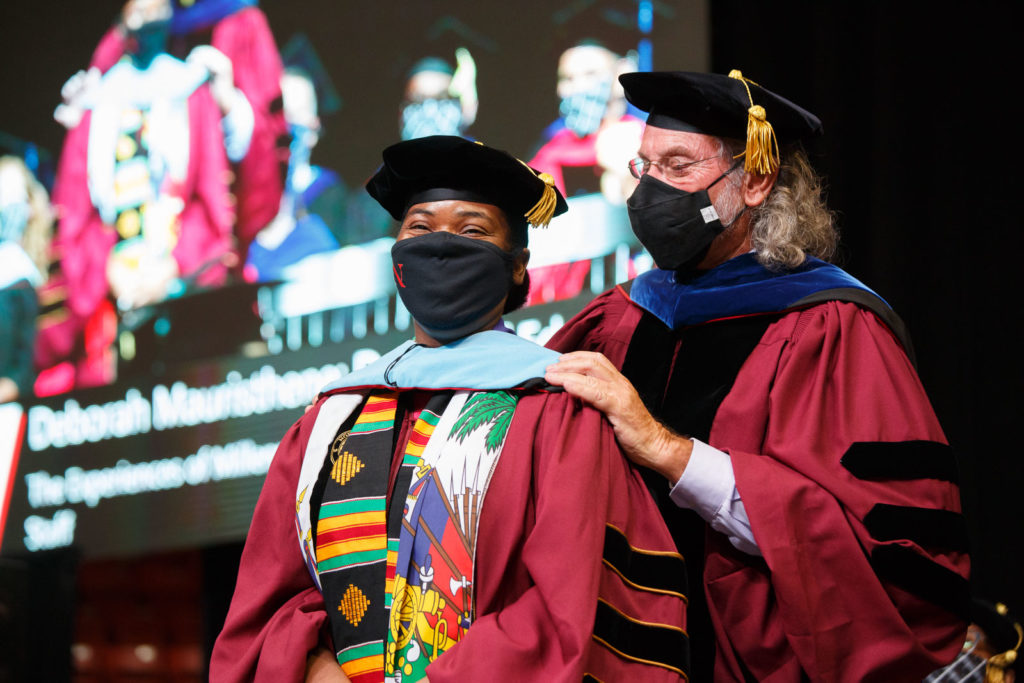
The words of Brent Musson, (Doctor of Law and Policy ’20), captured the mood at the Doctoral Hooding and Graduation Ceremony of the College of Professional Studies in Matthews Arena Sept. 9—and at the Master’s Graduation Ceremony in the same location the following day: “Humanity at its best,” the 2020 Dean’s Medal recipient said in his remarks to the successful doctoral candidates, “is humanity in gratitude.”
Gratitude was in abundance both days as faculty, administrators, students and their families—as well as friends of the College worldwide via livestream—celebrated the graduates’ achievements in the face of extraordinary challenges. Speakers at the ceremonies praised the degree recipients for their perseverance in scholarship despite a global pandemic, their passionate commitment to learning and their determination to address real-world problems in their project-based learning and research.
‘Both humility and pride’
In his opening remarks on Sept. 9, Provost and Senior Vice President for Academic Affairs David Madigan, Ph.D., welcomed the College of Professional Studies (CPS) community, expressed his faith in the graduates’ future success and his pride in their accomplishments and celebrated their membership in Northeastern’s “powerful knowledge network” dedicated to the dream of a more just and equitable society. He was followed at the podium by Interim Dean of CPS Dr. David Fields, who noted the unusual degree to which CPS students break down the barriers between work and learning.
“Our doctoral students are already fulltime professionals and leaders in their fields,” Dr. Fields observed. “In true Northeastern fashion, they are researching what they live, and living what they research, every day.”
Dr. Fields went on to explain the significance of the hooding ceremony—so-called because doctoral students traditionally have the hoods of their academic regalia lifted over their heads by faculty.
“The symbolism of the hooding ceremony at our doctoral commencement honors both the doctoral candidate’s work and the network of relationships that make that work possible,” Fields said. “[It] embodies both humility and pride, on both sides of the relationship, as faculty members welcome a new peer into their community.”
Faculty speaker Dr. Mounira Morris (B.S. ’91, M.S. ’95), assistant teaching professor and the co-lead for the Master of Education in Higher Education Administration program, offered her congratulations to the graduates and acknowledged the special challenges that had arisen during their studies, including the pandemic and the persistence of racial injustice. She quoted James Baldwin, noting his achievements as a playwright, novelist and civil rights activist: “Not everything that is faced can be changed, but nothing can be changed until it is faced.”
“To me,” Dr. Morris said, “this means that at times we will collectively endure hardship; however, we can use these experiences, especially as doctors, to offer wisdom, hope, and a better path forward.”
A longtime leader in diversity, equity and inclusion (DEI)—and currently working with colleagues at Northeastern to develop a new academic credential in DEI—Dr. Morris emphasized the power for good inherent in the attainment of an advanced degree, encouraging the graduates to find creative solutions to the challenges in their professions, communities and personal lives.
“We, as faculty,” she said, “ask that you take your research, and go out and change your world, your profession, your workplace and make it just a little bit better than before. We, as faculty, believe you can persevere and persist. We know you can.”
Intellectual explorers
Dr. Musson, whose acceptance of the 2020 Dean’s Medal had been previously postponed due to Covid-19 precautions, suggested in his remarks that the attitude of an academic researcher is “not that of an author or maker, but rather that of an explorer.” He praised the selflessness and commitment of his peers and made a critical distinction between an undergraduate education—which, he said, “teaches a student how to learn”—and a graduate education, in which students learn “to use tools … to solve other people’s problems” and to create value, going “from inward-facing to outward-facing.”
He noted that, soon after a doctoral candidate’s academic journey begins, “we become acutely aware of what we’re signing up for; to spend the next few years engaged in the most rigorous intellectual exercise of our lives, to extract a single, pure, tiny drop of insight to ever-so-slightly raise the sea level of the ocean of human knowledge.”
And he described a moment of inspiration in what he termed a spiritual awakening: a street soccer game he had observed in West Africa more than a decade earlier, where, when a beautiful goal was scored, both teams celebrated. Drawing a parallel between the players’ selfless joy and the academic community he had found at Northeastern, Dr. Musson said, “These happy boys had purpose; and that purpose made them work together, against all odds to orchestrate a moment of greatness—a moment of pure, unselfish greatness.
“I’ve never circled a soccer field making wings with my arms,” he continued, “but research has made me part of our team, and this humbling honor is our winning goal.”
As Dr. Musson finished his speech, the audience rose to deliver a sustained standing ovation.
At the conclusion of the ceremony, Dr. Madigan returned to the stage to offer closing remarks, praising the successful doctoral candidates for their “drive, dedication and sense of purpose.”
“The world is ever changing,” he said, “but you are prepared to meet—and conquer—its challenges.”
Master’s Ceremony
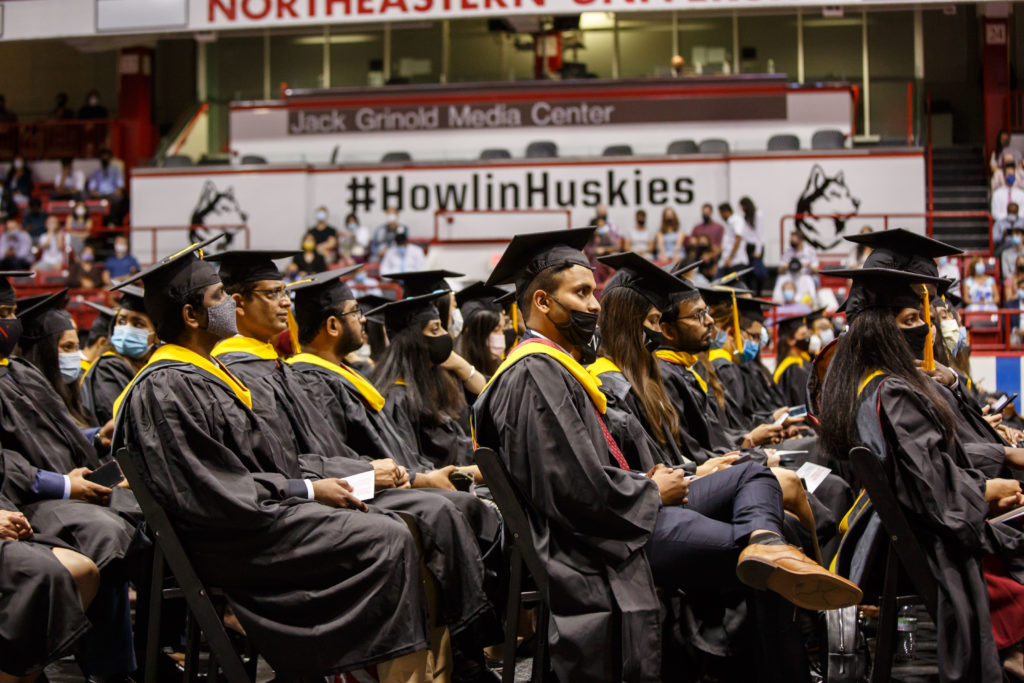
‘A day full of promise’
The following afternoon, Dr. Madigan returned to welcome master’s graduates to the arena on “a day full of promise.” He praised their “clear-eyed determination, discipline and hard work,” and offered special recognition to the faculty who, he said, by guiding the graduates to success, “have strengthened a legacy of knowledge and helped shape the future in scores of fields of professional endeavor.”
Following Dr. Madigan’s remarks, Dr. Fields spoke, celebrating the graduates’ global engagement and their cultivation of “the cultural competencies needed for a lifetime of contribution in a fast-paced, diverse, global society.” He went on to emphasize the benefits of their embrace of experiential learning, noting that in so doing, they had “addressed pressing, real-world problems” and become “well-prepared to lead from experience in the workplace.”
Dr. Fiona Creed, associate teaching professor and faculty director of the Global Studies and International Relations program, next introduced student speaker Ebony Small, ’21.
Reflecting on a year of adversity, Small observed “the pandemic itself could neither make nor break us” and asked graduates to consider the ways in which the challenges of the past 18 months had taught them to know their own courage, ambition, and steadfastness.
“We did not make it to this moment merely because we just-so-happened to survive a global pandemic,” Small said. “No, we made it here because we made the choice to value education and then fiercely pursued it. My dear friends and colleagues, despite the unexpected challenges of this year, we thrived. We grew. We changed.”
“This,” she concluded, “is what it looks like to turn a choice into a change. This is what it looks like to champion growth. Congratulations.”
From humble roots to world-renowned
Following an introduction by Dr. Earlene Avalon, associate professor and lead faculty for Health Administration and Health Sciences, graduation speaker Carl H. Whittaker, a philanthropist whose life path has spanned business, engineering and music, addressed the community.
A director of the Herb and Maxine Jacobs Foundation—which supports the College’s “A2M” or “Associates to Masters” program, offering an accelerated pathway from a community college associate’s degree to a bachelor’s at the College of Professional Studies and a master’s degree in Biotechnology at Northeastern’s College of Science—Whittaker began by invoking Northeastern’s origins as a vocational school offering evening classes, run by the YMCA.
“We all know that Northeastern is now a world-renowned university, highly ranked in many fields,” Whittaker said. “But inside this world-class institution is still the legacy of that 1898 night school.”
Whittaker linked this history with Northeastern’s emphasis on internship experiences, co-ops, and other programs that connect students to “great employers and great jobs.” He applauded the graduates for their effort and creativity in juggling jobs, families, and studies, urged them to embrace the role of mentor for other aspiring scholars, and invited them to fight income inequality—as his foundation does in part by supporting scholarships at Northeastern.
“I am inviting each of you to join my fight against economic inequality by encouraging at least one or two others to join you in earning an advanced degree,” Whittaker said. “Just be ready when you see a family member or neighbor who would value your guidance. Your friendly support might be thing that leads someone to a more prosperous and fulfilling life.”
The Doctoral Hooding and Master’s Ceremony were livestreamed from Matthews Arena. Click the links below to view recordings of the ceremonies.
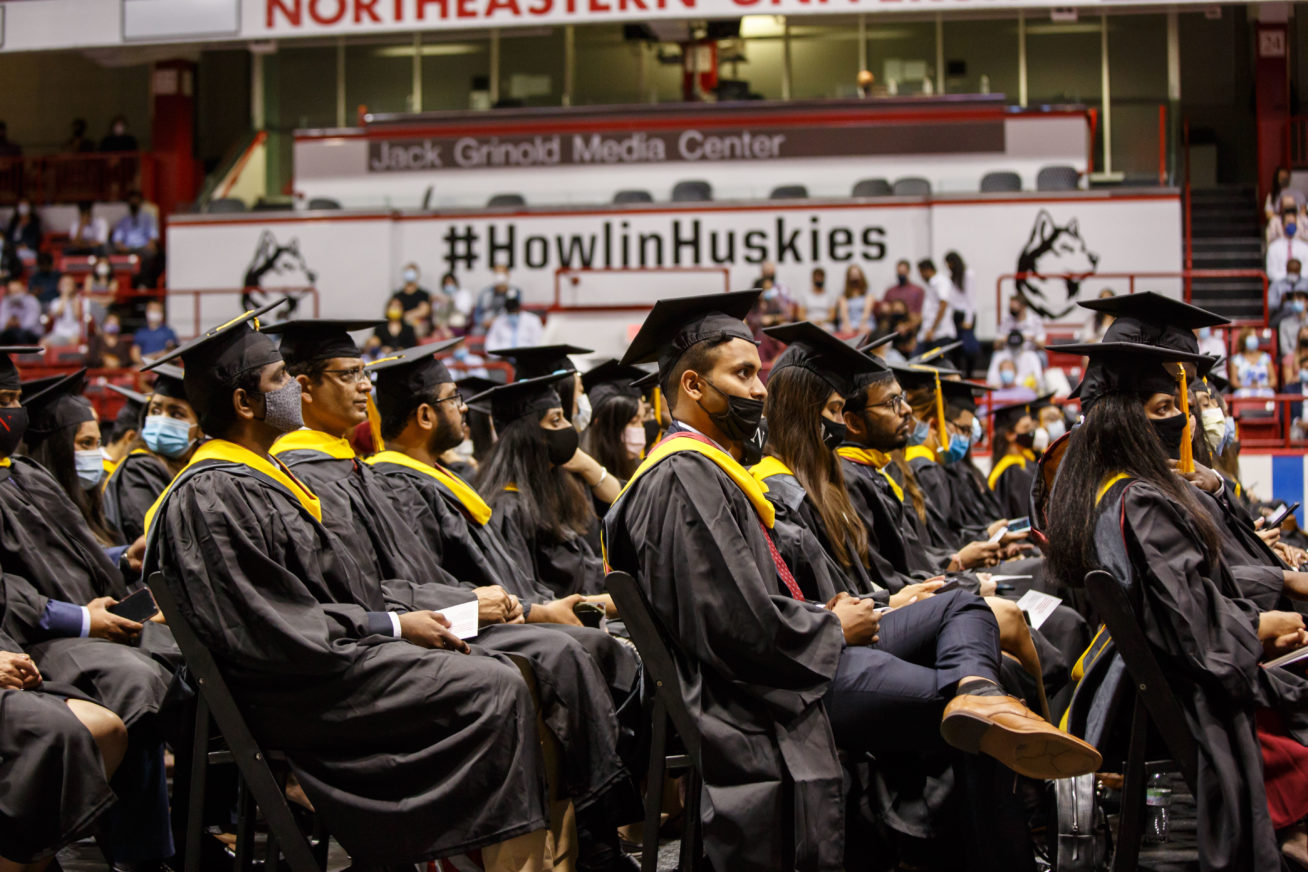
Watch the Ceremonies
The Doctoral Hooding and Master’s Ceremony were livestreamed from Matthews Arena. Click the links below to view the graduation pages and watch recordings of the ceremonies.
Learn more about our programs
The Pandemic Made the CPS Class of 2021 Double Down and Remain Focused
The pandemic was remembered at the College of Professional Studies’ master’s degree graduation ceremony on Friday as a unifying force that bred a kind of resilience and flexibility that allowed students to bend, but not break, under the pressure of a global health crisis.
“I Know He Would be So Proud” – Scholarship Donors Connect with Students
Written by Stephanie Krzyzewski
“Always, always be grateful to those who helped you.” These are the closing words of Marisa Lemus-Reynoso (Biotechnology, Class of 2023) as she addressed a crowded Raytheon Amphitheater at the annual College of Professional Studies undergraduate scholarship reception on the evening of August 19, 2021 on Northeastern’s Boston campus.
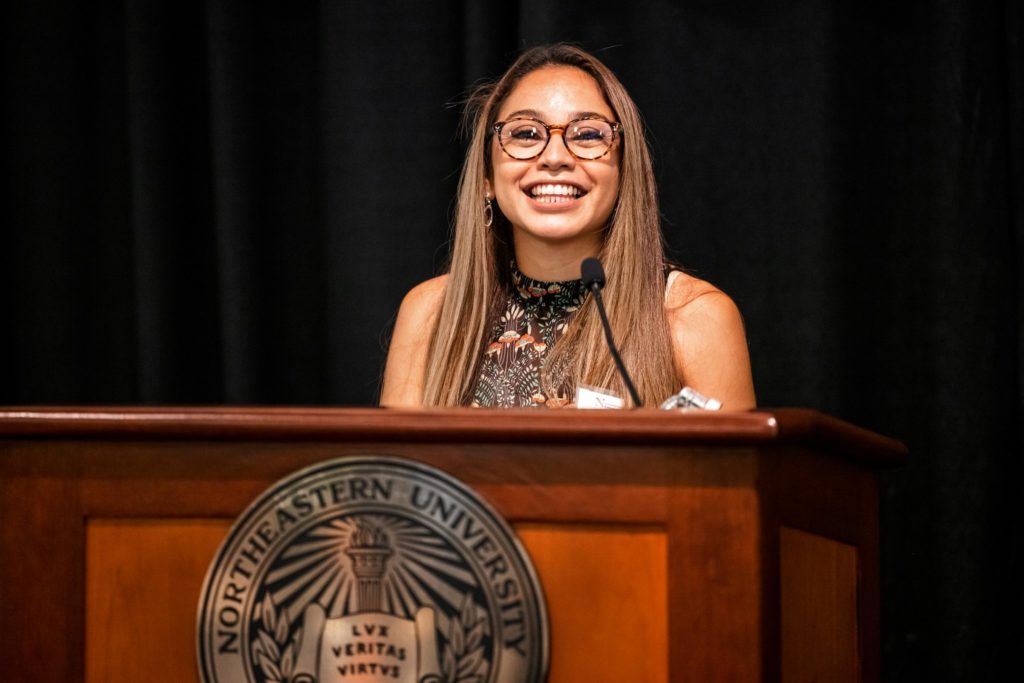
Marissa has good reason to be thankful, as do the dozens of other students in the room. A few weeks ago, they received the news that they would be receiving additional financial aid for the 2021-2022 academic year thanks to philanthropic contributions made by alumni and friends of Northeastern.
The College of Professional Studies has more than 50 scholarship funds established and supported through philanthropy throughout the past 40 years. For the upcoming academic year, this translates to approximately $400,000 in scholarship funding being awarded to more than 200 undergraduate students. Each summer the College hosts an event on campus to celebrate scholarship recipients and recognize their generous benefactors.
Marissa Lemus-Reynoso is receiving two scholarship this year – the Charles E. and Gail A. Evirs, Jr. Scholarship and the David R. Johnson Memorial Scholarship – and her benefactors were in the room on August 19 to hear her personal story and support her academic journey.
Nancy Johnson, who spoke just before Marissa, established the David R. Johnson Memorial Scholarship in memory of her late husband in 2019 along with her sister and brother-in-law, Joan and Pete Johnson. Dave, who earned his business degree from Northeastern in 1976, passed away in June 2018, and establishing the scholarship was a way for his family to find solace in his loss.
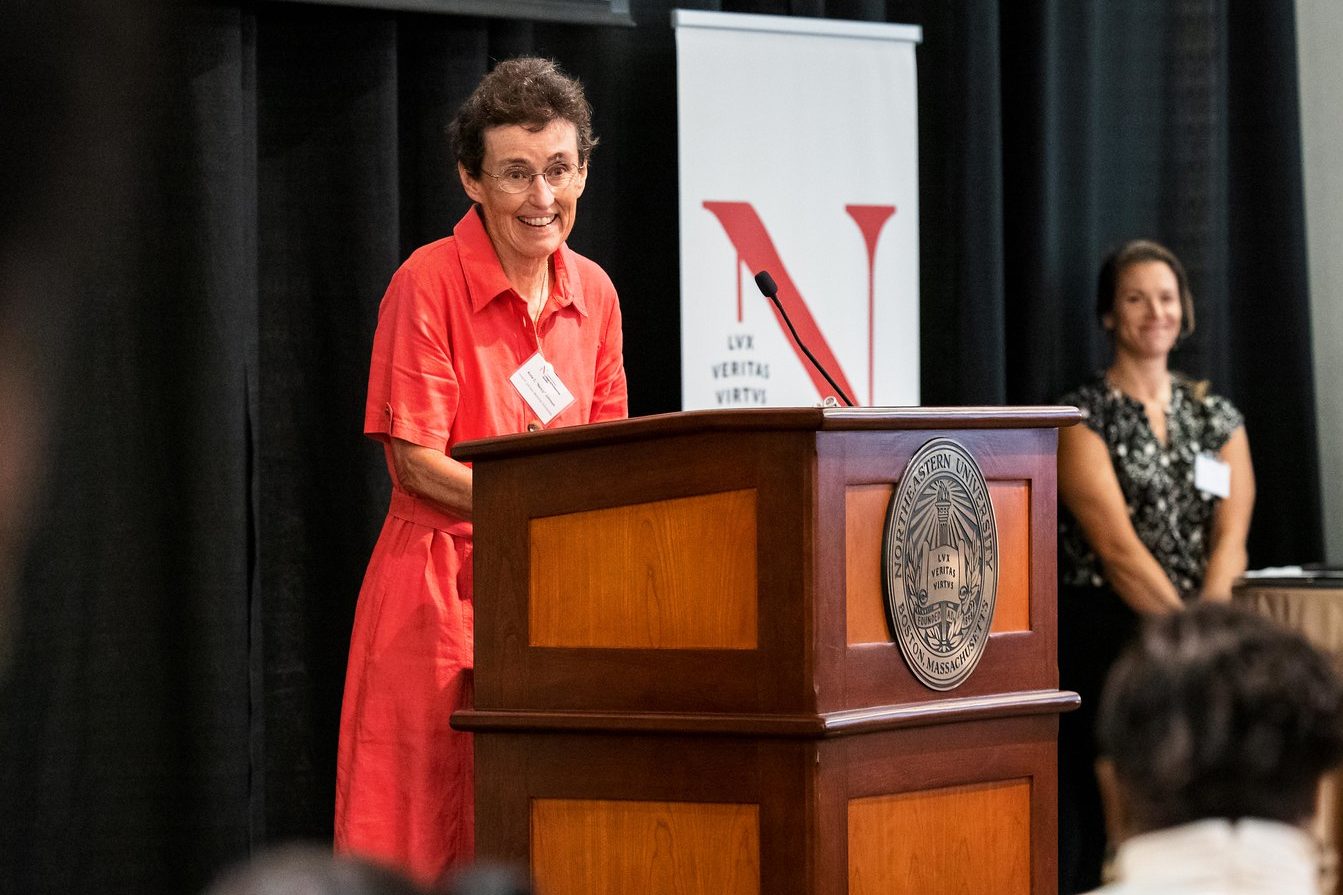
It was a special moment when Nancy introduced Marissa and invited her to take the stage, giving her an elbow-bump by way of welcome. Nancy had just finished sharing the story of Dave’s academic and professional journey, and you could hear her voice crack with emotion as she said, “Receiving this scholarship means Marissa’s life will forever be connected to Dave’s legacy, and I know he would be so proud of her if he’d had the chance to meet her.”
That sentiment is a tidy way to describe the purpose of this annual event – celebrating the impact of scholarships and the ability they have to transform lives and to foster lifelong connections among the Northeastern community.
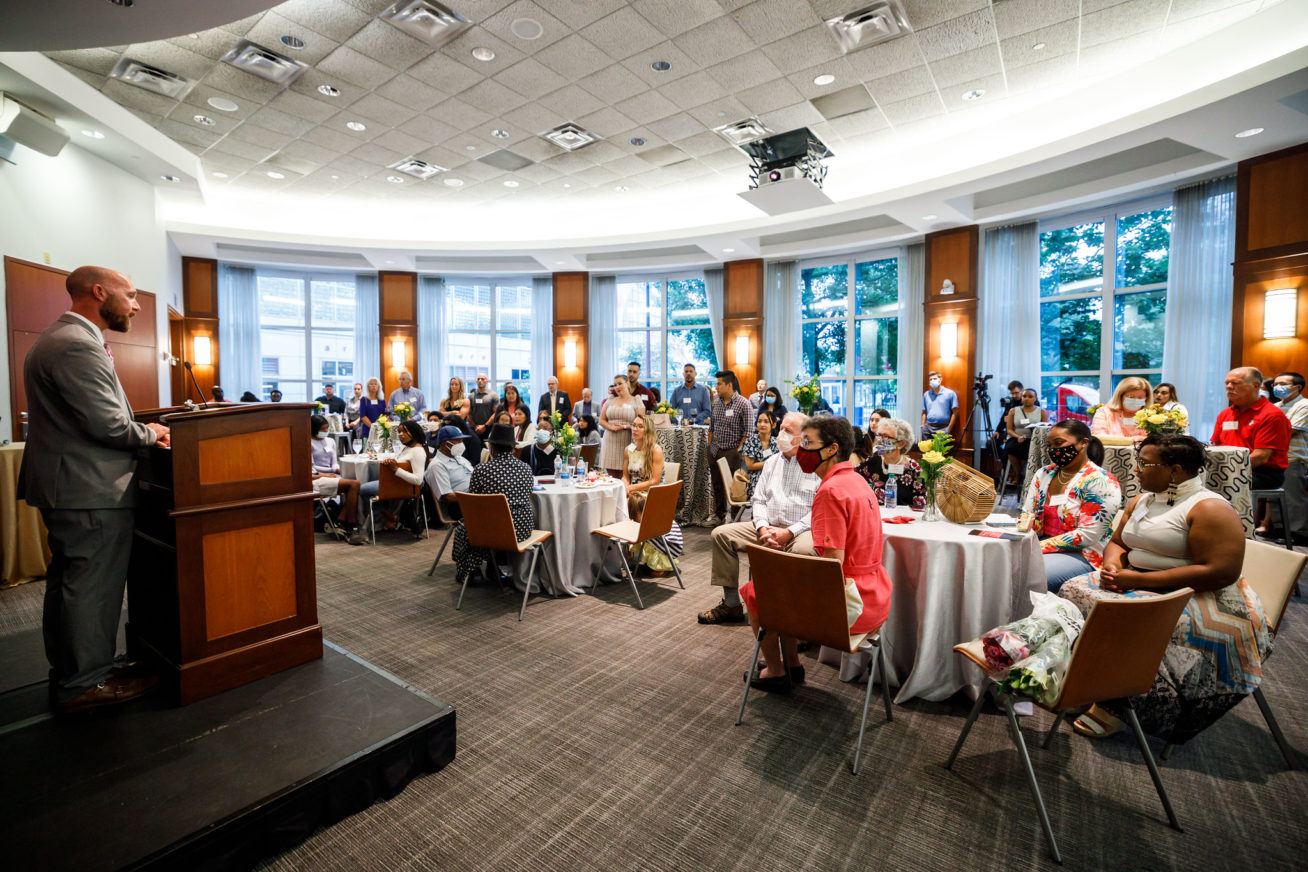
College of Professional Studies Undergraduate Scholarship Program
Learn more about undergraduate scholarships at the College of Professional Studies and view photos and video from the 2021 annual reception event.
If you have any questions about the undergraduate scholarship program at the College of Professional Studies, please contact Stephanie Krzyzewski, Director of Strategic Partnerships and Funds, at [email protected].
How Getting Involved and Leadership Roles in Student and Campus Organizations Led to the Right Graduate School Fit
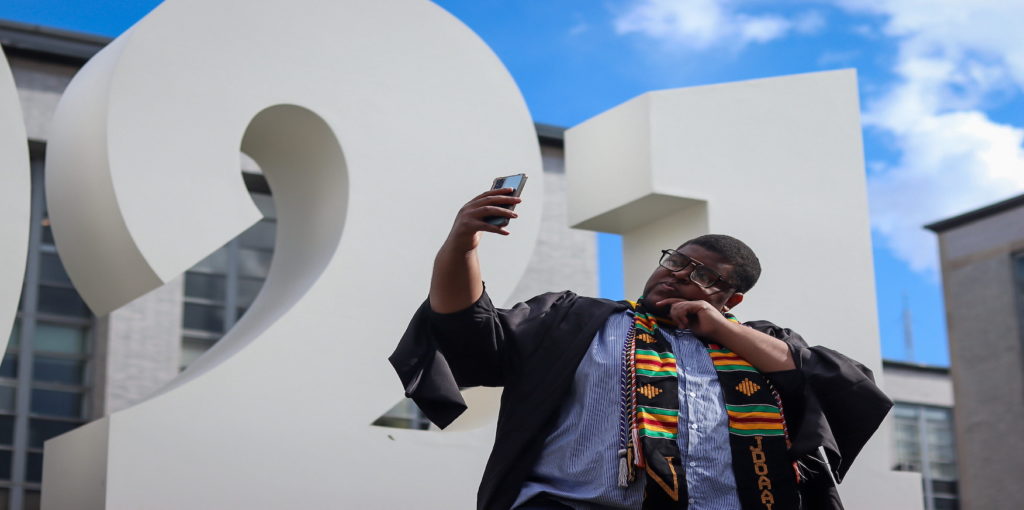
Danzel Jones graduated in May 2021 with a Master of Professional Studies degree in Digital Media with a concentration in Digital Video. When you count up all the organizations, initiatives and groups that Danzel Jones was involved with during graduate school, you can’t help but be in awe of how he was able to finish his degree in such a timely manner.
While in graduate school, Danzel was President of the Graduate Student of Color Collective. He is the Graduate Program and Events Assistant at the John D. O’Bryant African American Institute assisting with existing and new programming initiatives as well as the operations of the Center. He has also served as one of six student members of Northeastern’s College of Professional Studies Council for Equity, Inclusion, and Diversity Initiatives.
Also, he was honored in April as the Northeastern University Student Leader of the Year during the Student Life Awards given by the Northeastern Center for Student Involvement. In addition, he started Spotlight Media, his own photography and videography business; he has created and posted numerous videos on YouTube. Outside of school and work, his faith is very important to him, and he is very active at the Rehoboth Lighthouse Full Gospel Church Inc. and with the Northeastern University Unity Gospel Ensemble.
Danzel is also cofounder and cofacilitator of Conscious Connections, an interfaith initiative for faculty and staff through the Spirituality Center.
For Danzel, it took time to find the right program, the right fit, timing to join organizations, get involved, work within and then eventually lead these organizations. He also found a way to balance his outside activities and his academics and encourages others to do the same.
“I always made the distinction between quitting and throwing in the towel and I never threw in the towel, said Danzel. Whenever I speak to high school and college students, I make the point of saying — to never throw in the towel.”
When asked why he selected Northeastern, he says that the program didn’t require the GRE (a standardized test for admission to graduate school) and the hands-on and the collaborative approach to learning were key factors in his decision. Danzel also realized that digital media was always his first and foremost interest.
Danzel’s focus on digital media started at the Humanities and Leadership Development campus of Lawrence High School in Massachusetts, where he took production classes. From there, he went on to receive his Associate in Arts degree in Liberal Arts with a concentration in Communication from Middlesex Community College and his Bachelor of Arts in Communication degree from University of Massachusetts Amherst. Before Northeastern, he studied for his master’s degree in Public Administration in West Virginia.
“Some of the work I’m most proud of is expanding BIPOC (Black, Indigenous and People of Color) outreach and beginning to establish chapters on regional campuses, connecting with international students and to all students who don’t identify as white,” said Danzel. “I helped students engage during the global pandemic, and conduct conversations in a virtual space, which enabled people to vent about a wide range of issues including family, work and classes.”
Danzel’s thesis advisor and many of his classes were with Lecturer, Gary Greenbaum – who helped shape his capstone and thesis.
“I did a documentary on John D O’Bryant, the first African American to be appointed a Vice President of Student Affairs at Northeastern University and interviewed O’Bryant’s son, Dr. Richard O’Bryant and got his approval for the piece. Some of the classes that were so meaningful to me were about casting calls, and budgeting, as well as grants you can apply for to fund your project.”
What’s next for Danzel? In addition to his work at the John D. O’Bryant African American Institute, Danzel is helping a friend campaign for a School Committee seat in Haverhill, MA, designing the campaign website and photographing events.
After that, maybe it’s divinity school or a doctoral degree; for certain, Danzel will be using digital media to express his ideas.
Wide-Ranging Research Wins Recognition at RISE Awards
Six CPS students were honored at the 2021 RISE Awards, which recognize members of the Northeastern community universitywide for exceptional work in research, innovation, scholarship and entrepreneurship.
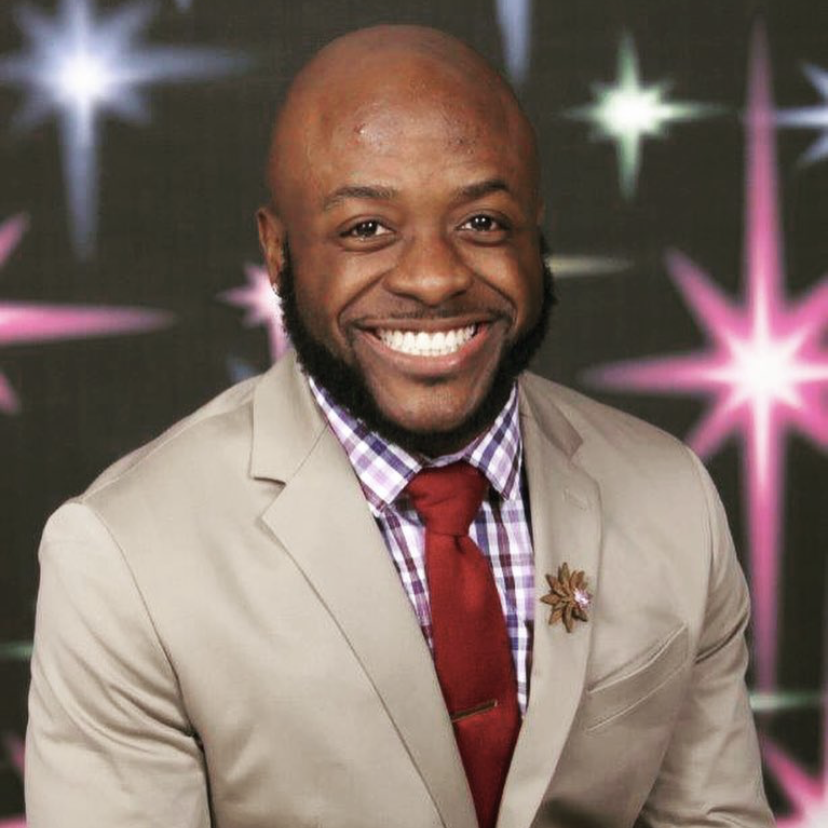
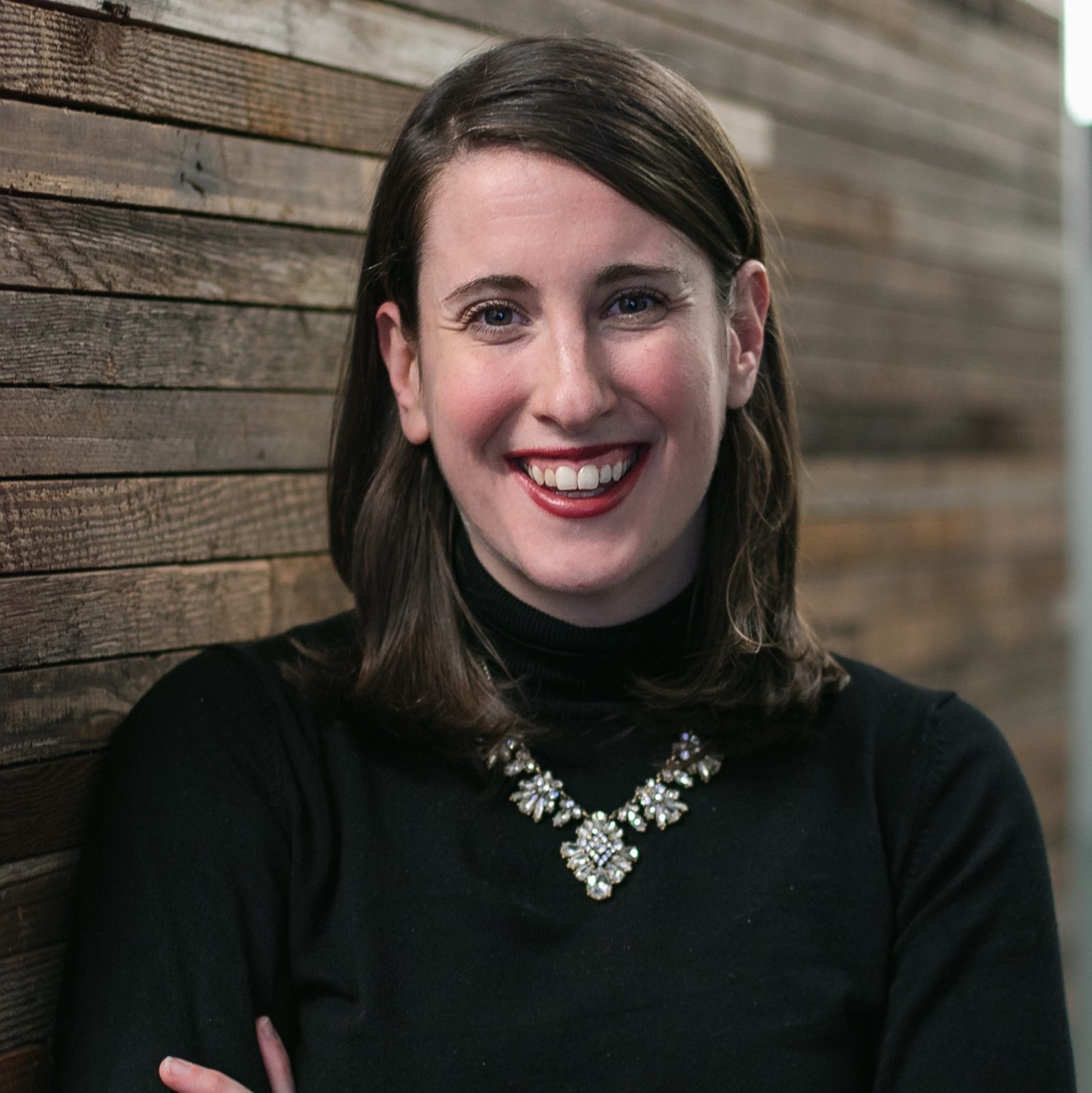
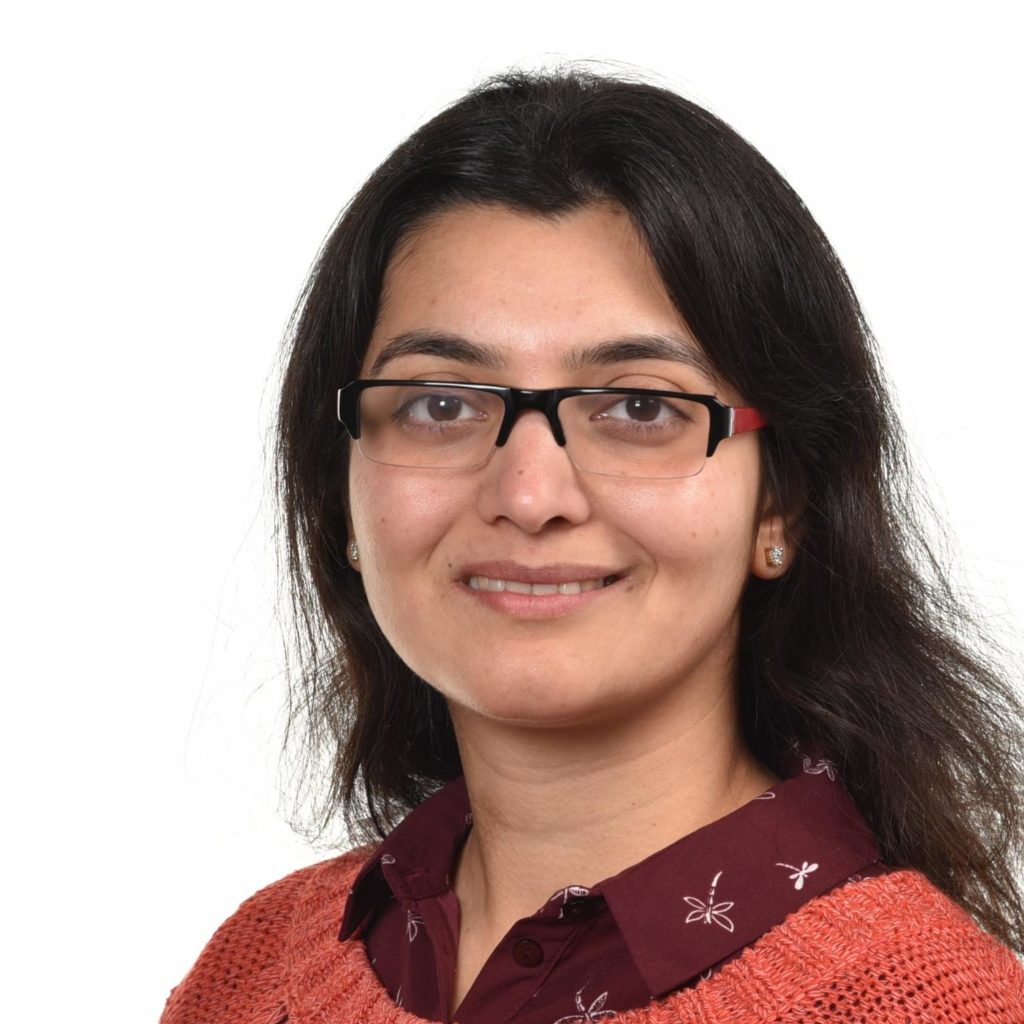
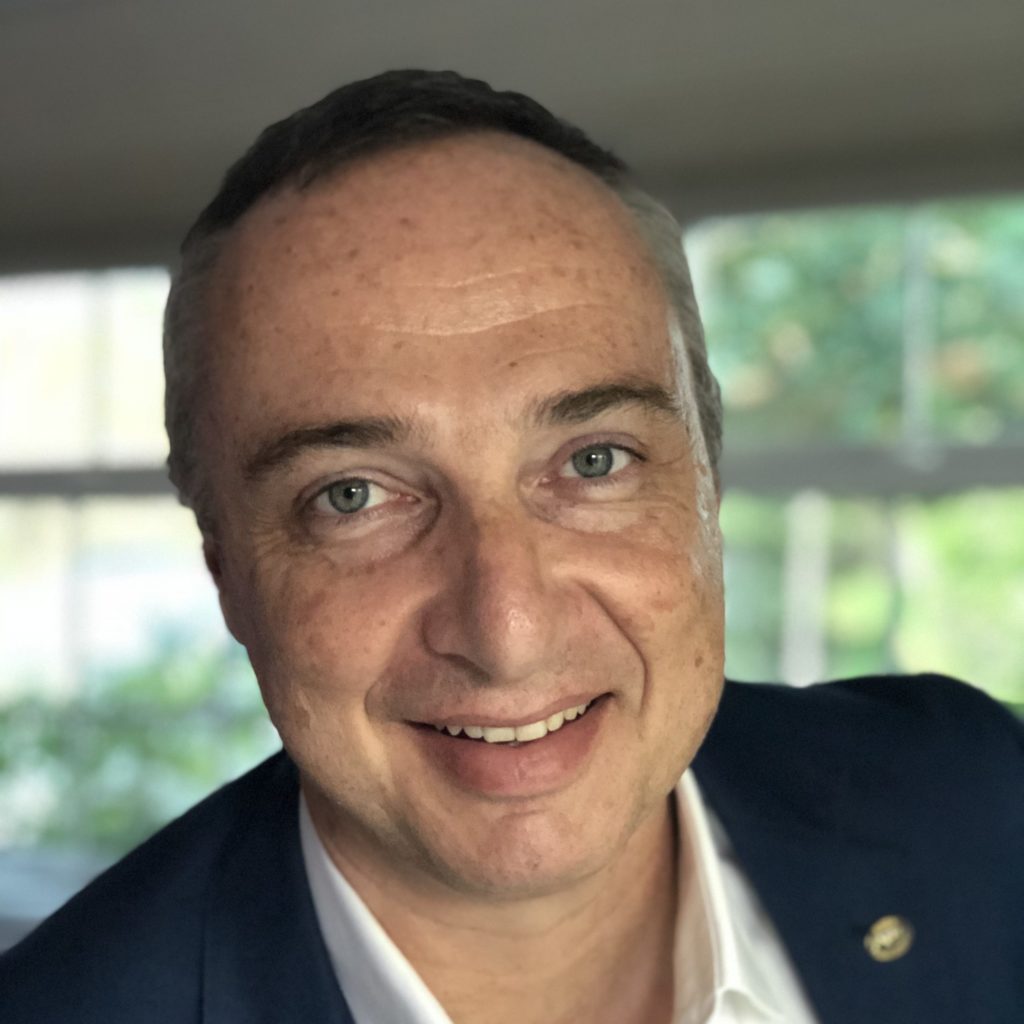
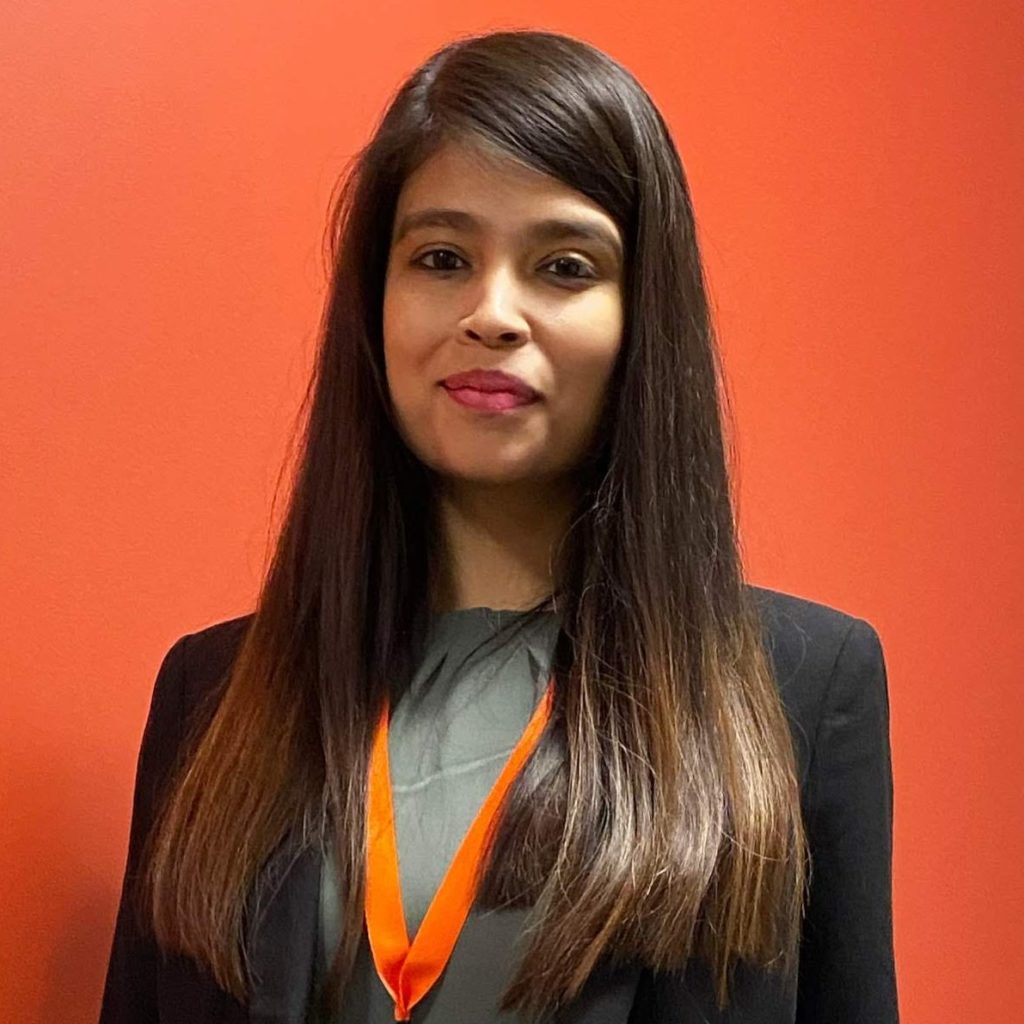

Victor Aimi (MS ’21, Corporate & Organizational Communication), Emily Bauer (EdD ’21, Higher Education Administration), Rhea (MPS ’21, Analytics), Joel Livingston (EdD ’21, Education), and Shreshthi Mehta (MS ’21, Leadership) won Focus Awards, while Kelsey Kaul (EdD ’22, Education) received a Category Award in Social Sciences, Business, and Law.
“The RISE Award means that others believe in the work I have done,” Livingston said. “I have always been someone who is self-motivated, but knowing that others see the significance of my research inspires me.”
Inclusive Engagement
Livingston was honored with the Graduate Innovator Award for “Restorative Justice Challenges and Culturally Responsive Classrooms to Improve Engagement.”
“Culturally responsive teachers create classroom environments that utilize symbolic curriculum to highlight beliefs and values related to cultural diversity and ensure that the images portrayed reflect positive aspects of multiculturalism,” Livingston said, describing his research. “Even more, culturally responsive classrooms can assist in keeping students of color engaged in class, which in return can influence positive behavior. In addition to culturally responsive classrooms, the implementation of restorative justice practices is recommended to maintain positive behavior. In many schools across the United States, restorative justice practices have been used as an alternative to suspensions, expulsions, and other exclusionary disciplinary practices. This inequality can prevent students of color from succeeding throughout their educational trajectory, leading them to misbehave more in school and the school-to-prison pipeline, which will ultimately prevent them from being successful and unlocking their full potential.”
The study for which he was recognized, he said, was designed “to ensure that restorative justice is more than just a buzzword in education.”
Diversity in Tech
In her project, “Reforming the Referral Process: Increasing Diversity for Tech Startups,” Kaul sought to address equity in the workplace.
“My research is rooted in understanding how to improve the diversity of technology teams at startups,” Kaul said. “This work is important because the technology sector impacts each of us, every day. Although the tech sector creates products for everyone, the teams that do this work are often not representative of the users they serve. The tech sector needs to increase its diversity to create better products.”
Kaul examined ways in which such companies can improve their diversity, focusing on how to ensure that referrals can diversify the pool of job candidates.
“This work is especially important to me because of my focus on ensuring the success of women and minorities in STEM,” she said. “At Northeastern I work with master’s in engineering students who are the future of the technology sector. My program is over 50% female, which is unique in this sector. In my role, I help these students prepare for their future careers in tech, but I often ask myself, where are they headed? Is the industry ready to support them? That is what led me towards this research.”
Improving Access
Supporting the success of women is at the heart of the work of Shreshthi Mehta. In “Exploring the Challenges of Employing Women as Porters in Cusco, Peru,”Mehta studied the cultural and demographic barriers preventing women from working as porters on the popular tourist trek to the Incan citadel of Machu Picchu. Her research revealed how measures to ease women’s access to such coveted jobs have proved profitable.
“Women of many cultures face several stereotypes, where they are prohibited from pursuing certain jobs or careers,” Mehta said. “The story of women porters in Cusco and their pursuit to work in a severely male dominated profession is revolutionary. It showcases the DEI [diversity, equity, and inclusion] initiatives of the owners of Evolution Treks in how diversity has proven to be beneficial to the tour company, in spite of the higher operational costs of employing women porters.”
Cross-Cultural Communications
Victor Aimi’s identity as an immigrant, he said, informed “Cultural Challenges of International Websites,” in which the native Argentine “set out to study why websites sometimes seem to have a mind of their own when accessed overseas.” In the course of his work, Aimi found that web technology is just one dimension in the more complex problem of making the web work well across borders.
“This is fascinating to me,” Aimi said, “because websites are a central part of any communications effort with international audiences, yet I did not often think of the cultural dimensions enabled by the web before this project. My habit was to just to rely on the technology.”
Receiving a RISE Award, Aimi said, illuminated his own identity in a way he hadn’t expected.
“As an immigrant I often experience cultural differences as a burden,” he said. “The award made me realize that cultural awareness can also be an advantage. I’m truly grateful to Professor Patty Goodman for helping me figure that out.”
Improving Efficiency
Rhea — who, like Aimi, is an international student—rooted her research in resource optimization, using her project, “Predicting Memory Utilization on High Performance Computing Cluster,” as an opportunity to help hone the efficiency of Northeastern’s research computer network.
“Northeastern made it easy for me to settle down in the culture,” the Analytics graduate said of emigrating to Boston from her native India. “At the very beginning of my experience, I was offered a part-time job at Northeastern, in Research Computing. I felt ecstatic and I couldn’t wait to apply all the knowledge into practice as I learned. I had a chance to learn from the best professors at CPS. This project was my chance to use my knowledge to create something for my university.”
By analyzing the way Northeastern’s high-performance computing cluster utilized memory, she developed a data analytics framework and a machine learning model that makes the cluster more efficient—and more easily accessible to researchers.
“I was lucky to have had this opportunity to learn from the best of my team here in the Research Computing department at Northeastern, and I can’t thank them enough for their constant support and motivation,” she said. “This experience has created a platform for me to move forward, and it has set a path for me to reach my career goals.”
Mental Health Literacy
Emily Bauer’s dissertation, “Mental Health Literacy in Student Affairs Graduate Preparation Programs,” focused on training non-clinical college and university student-affairs staff in identifying and intervening in emerging mental health issues for students. Citing increasing student mental-health concerns—and observing that they are now coupled with the lingering effects of the Covid-19 pandemic—Bauer described her study as a pilot education program aimed at graduate students in student affairs master’s programs “to enhance skills and confidence in the area of mental health literacy.”
Like many of her colleagues, Bauer’s research was inspired by direct experience in which she discerned a broader challenge.
“I chose the framework of mental health literacy based on my perspective as a mental health first aid instructor,” she said, “which has shown me that anyone can support and help others experiencing mental health concerns. I would like to empower those in my field to do this and take action to support students on college campuses.”
Livingston noted that his work, too, was rooted in personal experience.
“Restorative justice in schools is important to me because as a student in New York City public schools, I had several teachers who misinterpreted my lack of focus as defiance,” he said. “As a teacher/school administrator, I see many students experiencing the same issues I had. I am now in a position where I can change this narrative, and that is what I intend to do.”
The COVID-19 Outbreak in India Hit Hard in His Hometown. So He Built a Hospital There.

CPS Project Management student Jason Peter worked through the night the past few weeks to develop a COVID-19 hospital in his native Bangalore, India — an inspiration that took form from his capstone project.
The hospital, which will be called the Rapha Care Center, will open on July 1. The five-floor building will provide 130 beds and at least four ventilators. Peter’s team hopes to treat 400 patients per month.